The AI Startup Revolution
In the bustling realm of technology and entrepreneurship, a new era is being shaped by Artificial Intelligence (AI). AI startups are not just part of this revolution; they are at the forefront, driving significant changes in the way businesses operate and innovate.
The significance of AI in the startup ecosystem is immense, offering unprecedented opportunities for growth, innovation, and reshaping traditional business strategies. This transformative power of AI is reshaping entrepreneurship, compelling startup founders and CEOs to adapt and innovate continually.

The Ultimate Guide for UX Designers
The only ebook you'll ever need to master AI for UX design.
Get 30% Off TodayHow AI is Reshaping Entrepreneurship and Business Strategies
AI is transforming traditional business strategies, pushing entrepreneurs towards data-driven decision-making, personalized customer experiences, and efficient operational processes. This shift is creating a more dynamic, responsive, and competitive entrepreneurial environment.

The Foundation of AI Startups
What Constitutes an AI Startup?
AI startups are characterized by their unique approach to integrating artificial intelligence into their business models and operations. These characteristics include:
Innovative Use of AI: They stand out by creatively applying AI to develop unique solutions or disrupt markets. This innovation often involves pioneering new algorithms or novel applications of machine learning.
Data-Driven Approach: Central to these startups is the use of data as a fundamental decision-making tool. They analyze and interpret data to guide product development, market strategies, and operational decisions.
Scalability: AI startups design their business models and solutions for rapid growth. They leverage AI's capabilities to handle increasing demands, ensuring they can expand quickly and efficiently.
Technological Agility: These startups are agile in adopting new AI technologies and adapting to advancements. This flexibility allows them to stay competitive and continually refine their offerings.
Market-Focused Solutions: They excel in identifying and addressing market needs with AI-driven solutions. This focus ensures their innovations are not only advanced but also relevant and impactful in the market.
In summary, AI startups are not just about using advanced technology; they strategically use AI to create value and drive market-focused innovation.
The Evolution of AI Technologies in Business
The introduction of AI in the business world is an important shift away from traditional manual data analysis to an AI-driven method. This shift has significantly altered the way businesses operate and strategize:
From Manual to Automated: In the past, companies depended on manual processing of data which was slow and error-prone. AI automatizes processes that speed up processes, as well as reduces human errors.
Predictive Analytics And Machine Learning: AI technology like predictive analytics has helped businesses predict future trends using past data. Machine learning algorithms are constantly improving by analyzing data, resulting in more precise predictions over time.
Operating Efficiency: The application of AI has increased efficiency in business operations. Tasks that used to take days to complete manually can now be accomplished efficiently, allowing businesses to concentrate on strategic decisions and innovation.
Strategic Decision-Making: Through AI businesses can make intelligent, data-driven choices. This enables more specific marketing strategies, enhanced customer experiences, as well as better utilization of resources.
In most cases, the integration of AI within the business has transformed businesses from a reactive to an active stance, using data to gain strategic advantages and efficiency in operations.

Starting an AI Venture: A Guide for Entrepreneurs
5 Key Steps to Launching a Successful AI Startup
Launching a successful AI startup involves five essential steps. From identifying market needs to securing funding and strategic market entry, each step is critical to your startup's success. Let's explore these key elements.
Identify a Market Need: Find a specific problem in the market that your AI can solve. For example, an AI startup might identify inefficiencies in online customer service and aim to address this with an AI chatbot.
Develop a Robust AI Solution: Create a solution that is both technologically sound and meets market needs. If the identified need is in personalized healthcare, the startup would develop an AI system capable of analyzing patient data for personalized treatment plans.
Assemble a Skilled Team: Gather a team with diverse expertise in AI, business, and the specific industry you're targeting. For an AI-driven finance startup, this would mean combining AI experts with experienced finance professionals.
Secure Funding: Explore various funding options, such as venture capital, angel investors, or grants. A clear and compelling pitch demonstrating your AI solution's potential is crucial.
Go to Market Strategically: Plan your product launch considering factors like timing, marketing channels, and initial target markets. For instance, a B2B AI solution might start with a pilot program in a niche industry before scaling up. Thinking about the promotional channels you target is particularly important in this context. If you want to connect with prospective customers on established platforms, using Amazon advertising software like Advigator will enable this efficiently, although for other startups focusing on different product categories an alternative approach may bear fruit in a narrower timeframe.
Each step is vital for building a foundation for success, ensuring that the AI startup not only creates a valuable product but also effectively brings it to market.
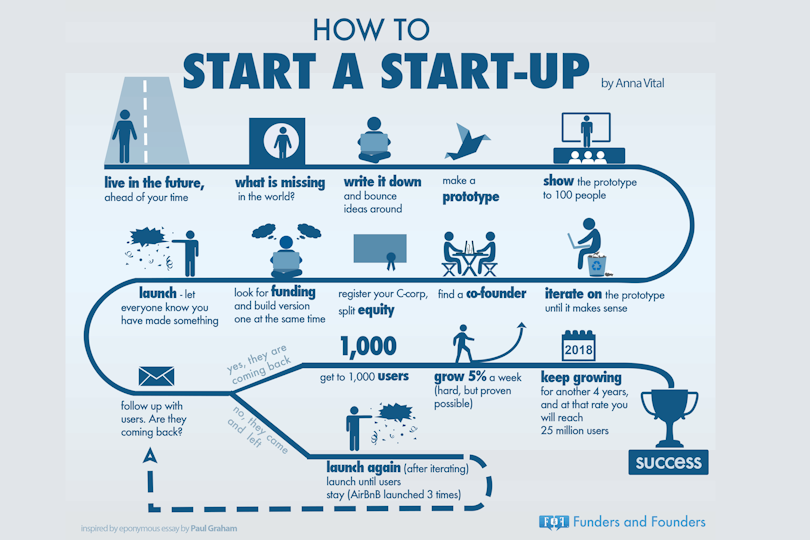
5 Resources and Tools Essential for AI Startup Founders
Here are 5 distinct AI business startup resources:
AI Development Platforms: Platforms like OpenAI, TensorFlow and IBM Watson provide robust environments for building AI applications. OpenAi’s ChatGPT API is one of the common ways of building AI products easily.
Online Learning Resources: Websites like Coursera and Udacity offer AI and machine learning courses.
AI Startup Communities: Online forums and networks for sharing insights and advice. Examples are the r/MachineLearning subreddit, Stack Overflow, and LinkedIn Groups like "AI Startups Network".
Data Analytics Tools: Essential for understanding market trends and customer behavior. Prominent examples are Google Analytics, Tableau, IBM Watson Analytics and Mixpanel.
Project Management Software: Tools to manage your team and workflow efficiently. Notion, ClickUp, and Asana are some amazing productivity tools to help streamline your projects
Aside from the above, we at Adam Fard Studios understand the importance of finding the right tools to kickstart your AI Startup journey, hence, we’ve done the heavy lifting for you by compiling the Top 20+ AI Tools Every Startup Business Must Have. Dive in and thank us later.
Opportunities and Growth in AI Startups
Identifying Lucrative Markets and Niches in AI
AI startups find their stride by exploring uncharted territories or bringing innovation to existing markets. Opportunities for significant impact and growth often exist in sectors primed for transformation through AI:
Healthcare: AI can revolutionize healthcare with personalized treatment plans, diagnostic tools, and patient care automation. An example is AI systems that analyze medical imaging faster and more accurately than human counterparts.
Finance: In finance, AI is used for everything from fraud detection to algorithmic trading, offering more efficient and secure financial services.
Customer Service: AI-driven chatbots and virtual assistants can dramatically improve customer interaction, offering 24/7 support and personalized experiences, thereby increasing customer satisfaction and operational efficiency.
Identifying these lucrative niches requires a deep understanding of current market gaps and an ability to forecast future needs and trends, leveraging AI's potential to meet these demands.
AI's Role in Driving Business Innovation and New Avenues
AI is more than a technological tool; it's a catalyst for reimagining how businesses operate and innovate:
New Business Models: AI enables the creation of new business models that were previously unfeasible. For instance, AI can allow companies to offer predictive maintenance services for industrial equipment, using AI to anticipate failures before they happen.
Personalization at Scale: AI's ability to analyze vast datasets enables businesses to offer highly personalized experiences to customers. An example is e-commerce sites using AI to provide tailored product recommendations, enhancing user experience and increasing sales.
Operational Efficiency: By automating routine tasks, AI frees up human workers to focus on more complex, value-adding activities. In manufacturing, AI-driven robots can handle repetitive tasks with precision, reducing errors and increasing production efficiency.
Opening New Revenue Streams: AI can unlock new revenue streams. For example, a company collecting vast amounts of data can use AI to glean insights from this data, creating new information products or services.
AI's role in modern business goes beyond mere technological implementation. It represents a shift in how companies approach problem-solving, innovation, and value creation, opening up new avenues for growth and transformation in various industries.

Risks and Challenges of AI Startups
AI startups operate in a dynamic landscape where innovation meets unique challenges. In this overview, we dive into the complex terrain of risks and obstacles, from data privacy concerns to regulatory compliance and fierce market competition. Explore strategies to effectively address these challenges and propel your AI venture towards success."
Navigating Complexities and Risks in AI Startups
Data Privacy and Security: In the age of big data, AI startups must rigorously protect user data. Breaches can lead to significant legal and reputational damage. For instance, AI companies handling healthcare data must comply with HIPAA regulations to ensure patient privacy. You might also be considering ISO 27001 certification as a means of not only ensuring compliance with relevant regulations, but also establishing the trustworthiness of your startup from an outsider’s perspective. Prospective partners and customers will want to see that you take data security seriously, and adhering to the ISO 270001 framework with official accreditation to support this will be solid proof of this.
Compliance with Regulatory Standards: Adhering to laws, such as the GDPR in Europe, is crucial for AI startups. These regulations are constantly evolving, especially around AI ethics and data usage, requiring startups to be vigilant and adaptable.
Technical Challenges: AI technology, while advanced, is not without limitations, including issues of bias and accuracy. Overcoming these requires ongoing research and development, as seen in AI-driven facial recognition technologies striving to reduce bias.
Market Competition: The AI space is becoming increasingly crowded. Standing out requires not just technological excellence but also clear differentiation, like a startup focusing on niche AI applications in environmental conservation.
Funding Uncertainties: Consistent funding is a challenge, especially for early-stage startups. Diversifying funding sources, such as combining venture capital with government grants, can provide more stability.
Effective Strategies to Mitigate Common Challenges
Implement Robust Security Measures: Implementing advanced security protocols and regular audits can help protect against data breaches, maintaining user trust and compliance.
Stay Informed on Regulatory Changes: Regularly updating policies and practices in line with new regulations helps avoid legal issues. Employing a dedicated compliance officer can be beneficial.
Invest in Research and Development: Continuous investment in R&D allows for improving AI algorithms and staying ahead in technology, as demonstrated by companies like NVIDIA in AI hardware development.
Differentiate Your Offerings: Developing unique value propositions, such as specializing in AI for renewable energy management, can help stand out in a crowded market.
Diversify Funding Sources: Exploring different funding avenues, including crowdfunding, strategic partnerships, and government funding programs, can reduce financial risk.
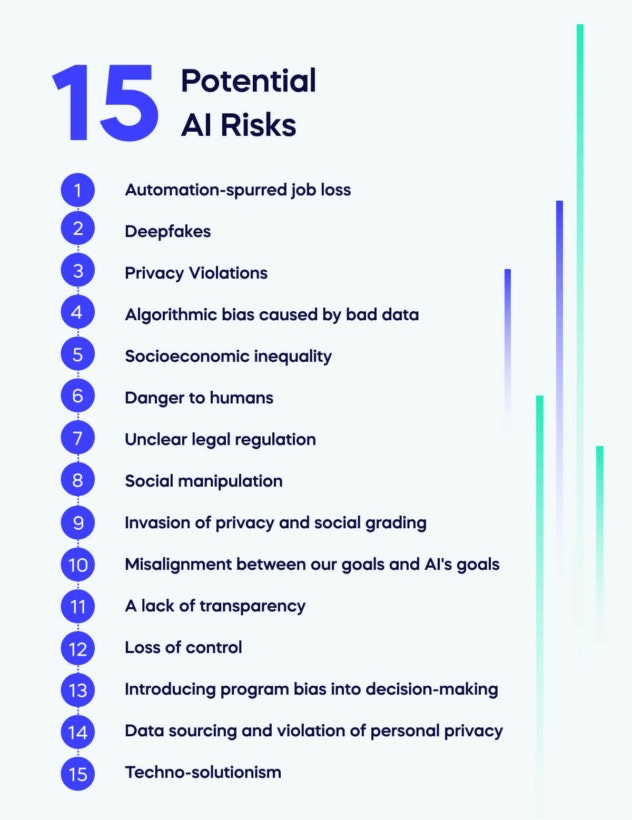
AI Startup Trends and Industry Influence
Let's embark on a journey through AI startup trends and industry impact. Explore ethical AI, healthcare advancements, automation, customer experience, and AI's growth in emerging markets."
Analysis of Current AI Trends and Future Predictions
Ethical AI Development: The focus is on developing AI responsibly to avoid bias and ensure fairness, as seen in IBM's commitment to ethical AI principles.
AI in Healthcare: Rapid adoption of AI in healthcare for tasks like diagnostics and predictive analytics. Startups like PathAI are making strides in AI for pathology.
AI-Driven Automation: Increasing use of AI in automating processes in manufacturing and logistics, exemplified by companies like UiPath in robotic process automation.
AI in Customer Experience: Startups are enhancing customer service with AI, like chatbots that provide personalized assistance, as seen in businesses like Drift.
Growth of AI in Emerging Markets: Developing countries are increasingly adopting AI, with startups addressing local challenges like agricultural optimization using AI.
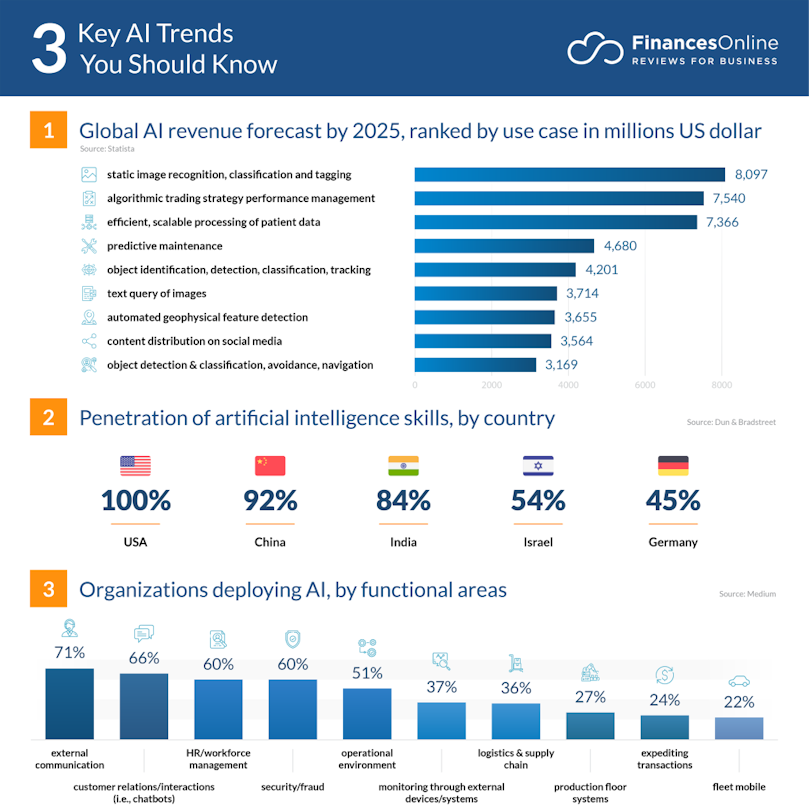
Funding and Investment Dynamics in AI Startups
Embarking on the journey of AI startup funding is a thrilling adventure filled with opportunities and hurdles. In this exploration, we delve into the dynamic world of AI investment, uncovering the diverse sources of financial support and the intricate challenges that await. Join us as we navigate the path to funding success in the ever-evolving landscape of AI startups.
Opportunities and Challenges in AI Startup Funding
AI Startup Opportunities:
Diverse Funding Sources: AI startups can access venture capital, angel investment, government grants, and crowdfunding. Each source offers unique advantages, like substantial financial backing and industry connections from venture capitalists.
Specialized VC Interest: Many VCs now specialize in tech and AI, offering not just funds but also valuable expertise and networks. This is particularly beneficial for startups needing guidance and industry-specific insights.
Government Grants and Support: In many regions, governments offer grants and support to AI startups, especially those in fields like healthcare, education, and environmental technology. These grants often come with fewer strings attached compared to private equity, allowing startups to retain more control and ownership.
AI Startup Challenges:
High Competition: The AI field is crowded, making it challenging for startups to stand out and attract funding. A unique and compelling business proposition is essential.
Equity Dilution: Raising funds often means giving up company ownership. Balancing the need for capital with maintaining control is crucial for founders.
Investor Expectations: Investors, especially VCs, aim for high returns, sometimes pushing startups towards rapid scaling which might not align with the original vision.
Complex Negotiations: Securing funding involves navigating complex agreements and ensuring terms are favorable to both the startup and its long-term goals.
In essence, while funding opportunities are plentiful, AI startups must skillfully manage the challenges of high competition, equity dilution, investor expectations, and complex funding agreements.
Venture Capital and Angel Investors' Roles in AI Startups
Venture capitalists and angel investors provide not just funds but also mentorship and network access, crucial for startup growth. This section delves into the multifaceted roles of venture capitalists and angel investors in the AI startup ecosystem.
Roles of Venture Capitalists in AI Startups
Financial and Strategic Support: Venture capitalists (VCs) typically invest larger sums in AI startups, especially during later funding rounds like Series A and beyond. They not only provide substantial financial backing but also strategic guidance to help startups scale effectively.
Mentorship and Industry Insights: VCs often have extensive experience and deep industry knowledge, which they share with startups. They help in refining business models, strategic planning, and navigating market challenges.
Networking Opportunities: VCs can open doors to valuable connections, including potential clients, partners, and industry experts. This networking is crucial for startups looking to expand their reach and build credibility in the market.
Roles of Angel Investors in AI Startups
Early-Stage Funding: Angel investors usually step in during the early stages of a startup, often when the venture is still refining its product or market fit. Their funding is vital for startups to move from a concept to a functional business.
More than Money: While their financial investment is typically smaller than that of VCs, angel investors often bring a wealth of experience as successful entrepreneurs or industry professionals. They provide mentorship, and practical advice, and can often offer a more personal level of involvement.
Flexibility and Risk Tolerance: Angel investors are known for their willingness to take risks on innovative ideas and unproven teams. They are often more flexible in terms of investment terms and expectations, which can be advantageous for startups still experimenting with their AI technology and business models.
In summary, venture capitalists and angel investors play pivotal roles in the growth of AI startups, offering a blend of financial support, mentorship, industry insights, and networking opportunities. Their involvement is often integral to transforming innovative AI ideas into successful, scalable businesses.
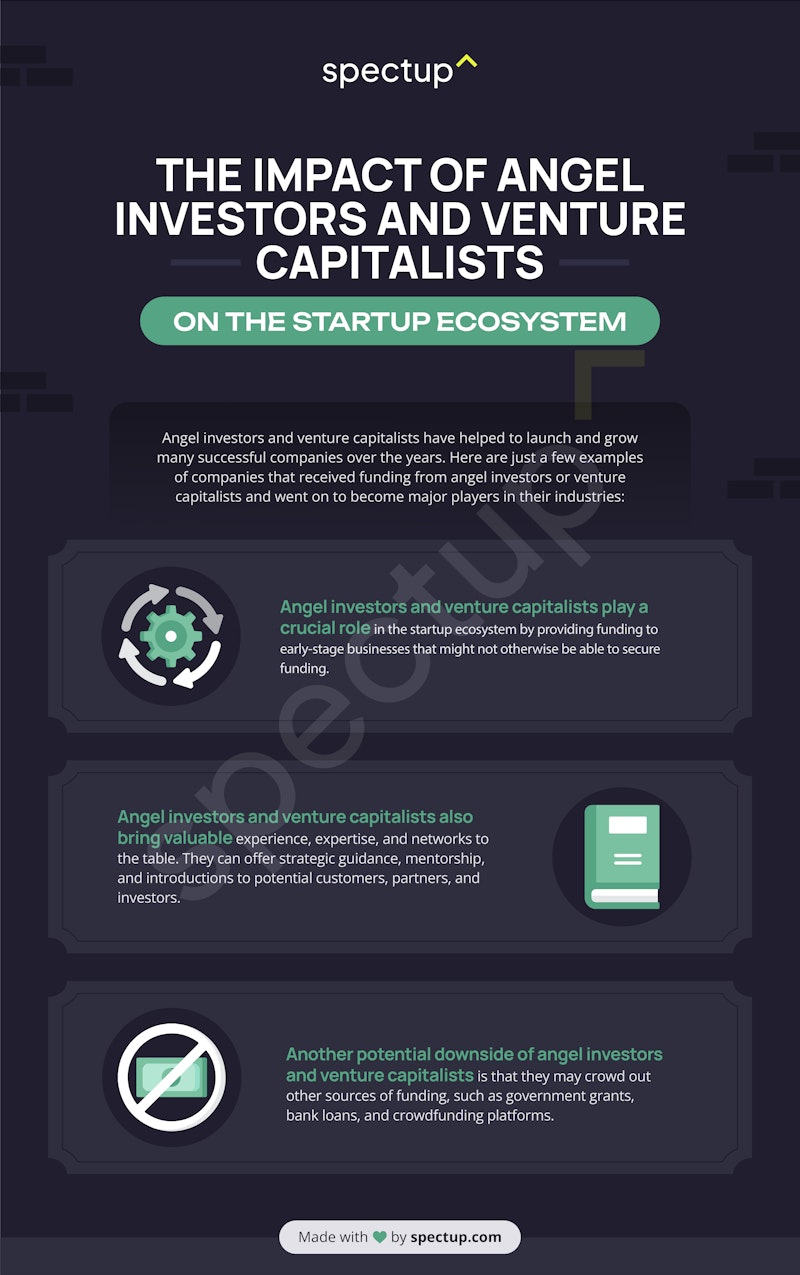
Integrating AI Technology: Practical Insights
Let's discuss the art of seamlessly integrating AI technology into business operations. Dive into best practices like data quality, user-centric design, scalability, and cross-departmental collaboration.
Best Practices for Incorporating AI in Business Operations
Focus on Data Quality: High-quality data is essential for effective AI applications, as seen in the emphasis on data integrity by leading AI companies.
User-Centric Approach: AI solutions must be designed with the end-user in mind for maximum adoption and efficacy, much like how Apple integrates AI in user-friendly interfaces.
Scalability and Flexibility: Building AI systems that can adapt and scale with the business, similar to Amazon Web scalable cloud solutions.
Collaboration Across Departments: Promoting teamwork across different business areas enhances AI implementation, as demonstrated by cross-functional teams in tech companies.
Continuous Learning and Improvement: Regular updates and training in AI systems ensure they remain effective and current, a practice seen in fast-evolving AI startups.
Case Studies of Successful Incorporation of AI in Business
Spotify: Spotify employs AI algorithms to analyze users' listening habits and estimate their musical preferences. Each time you enjoy music on the platform, the system takes note of your preferences, leading to personalized song recommendations within your favorite genres. Additionally, Spotify harnesses AI to optimize business operations by delivering targeted advertisements to users.
Coca-Cola: Coca-Cola, the renowned beverage company, has been exploring the application of AI in vending machines. These innovative machines provide personalized experiences by recommending beverages tailored to users' past selections. Moreover, Coca-Cola harnesses AI to analyze social media data, gaining insights into customer conversations about flavors and potential preferences.
Salesforce Einstein: Integrating AI into CRM, Salesforce Einstein enhances customer insights and automation, improving decision-making and customer engagement in business.
These case studies illustrate AI's diverse applications, from entertainment, Beverage drinks and gaming strategy to customer relationship management, emphasizing AI's transformative role in various industries.

Global Perspectives: AI Startups on the World Stage
In this section, let's explore the profound influence of AI startups on the global stage. Discover how these innovative ventures bridge technological gaps, tackle global issues, and fuel economic growth while fostering collaborative dynamics that span international borders.
AI Startups' Impact on Global Markets
AI startups are becoming vital players in the international market by introducing innovative solutions that have global relevance and applicability. Their impact is multifaceted:
Bridging Technological Gaps: AI startups often pioneer solutions that bridge technological gaps between developed and developing countries, democratizing access to advanced technologies.
Solving Global Issues: Many AI startups focus on global challenges like climate change, healthcare, and education, offering solutions that have far-reaching implications beyond their immediate market.
Driving Economic Growth: By innovating in key sectors, AI startups contribute significantly to economic growth, both locally and globally. They often catalyze the development of new industries and job creation across borders.
Collaborative Dynamics in the AI Startup Ecosystem
The AI startup ecosystem thrives on global collaboration, which takes several forms:
Partnerships with International Corporations: Startups frequently partner with multinational companies, combining nimble innovation with the resources and reach of larger entities. This symbiotic relationship accelerates the development and deployment of AI solutions on a global scale.
Cross-Border Research Initiatives: AI startups often participate in international research projects, collaborating with universities and research institutions worldwide. This exchange of ideas and knowledge fosters a rich, diverse research environment that propels the AI field forward.
Expanding into Global Markets: AI startups are increasingly looking beyond their local markets, expanding internationally to tap into new customer bases and diversify their operations. This global outlook not only enhances their growth potential but also contributes to the worldwide dispersion of AI technology.
In summary, AI startups are not only transforming industries but also playing a pivotal role in shaping the global economy and addressing international challenges. Their collaborative and innovative nature is essential in driving the global advancement of AI technologies.
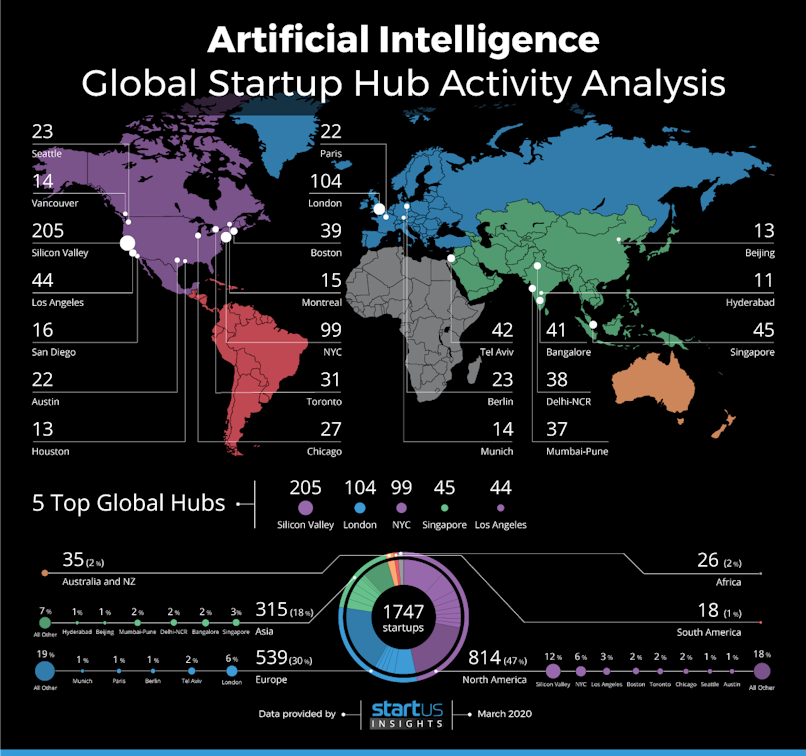
Leadership and Management Strategies for AI Startups
Here, we will dive into the essential leadership and management strategies tailored for AI startups' success. From visionary thinking to effective team management, these qualities and practices are crucial in navigating the dynamic AI landscape
Essential Leadership Qualities for Success
Visionary Thinking: Leaders must not only understand current AI trends but also anticipate future developments, positioning their startups to leverage upcoming opportunities and innovations.
Adaptability: In the fast-evolving AI landscape, successful leaders must be flexible, and ready to pivot strategies in response to new technologies and market shifts.
Effective Communication: Clear and transparent communication of goals, strategies, and expectations is essential to align the team and stakeholders with the startup's vision.
Resilience: The ability to face challenges and setbacks with determination and a positive outlook is crucial for navigating the uncertainties of the AI sector.
Emotional Intelligence: Understanding and effectively managing team dynamics, including diverse personalities and motivations, fosters a productive and innovative work environment.
Managing Teams and Projects Effectively in AI-Driven Environments
Empower Teams: Encouraging autonomy and creativity within teams fosters innovation, allowing members to experiment and contribute unique ideas to AI projects.
Agile Project Management: Adopting agile methodologies enables startups to be more responsive to change, adapting quickly to new information and market demands.
Data-Driven Decision Making: Leaders should cultivate a culture where decisions are based on data and analytics, ensuring choices are informed and objective.
Continuous Learning: Promoting ongoing education and skill development in AI keeps teams up-to-date with the latest technologies and best practices.
Effective Resource Allocation: Efficient management of resources, including time, budget, and personnel, is key to maximizing productivity and achieving strategic goals.
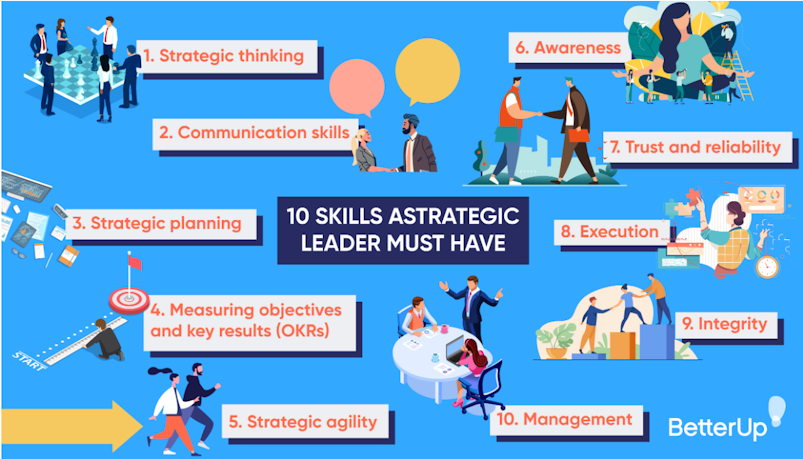
Ethical and Social Dimensions of AI Startups
We'll be looking into the ethical and social dimensions of AI startups, delving into considerations surrounding bias in algorithms, data privacy, and the broader impact of AI on society and the economy. Let's discuss how AI startups navigate these critical aspects of technology development
Navigating Ethical Considerations in AI Development
Bias in AI Algorithms: It's imperative to recognize and address biases in AI algorithms to ensure fairness and prevent discrimination in AI-driven decisions.
Data Privacy: Maintaining high standards of data privacy is essential to protect user information and build trust, especially in handling sensitive personal data.
Transparency: Ensuring the decision-making processes of AI systems are transparent helps in building trust and accountability, especially in critical applications.
The Broader Social and Economic Impact of AI Startups
Job Creation and Market Disruption: AI startups not only create new tech jobs but also disrupt traditional industries, necessitating workforce adaptation and skills development.
Enhancing Accessibility: AI technologies have the potential to make services and information more accessible to diverse populations, reducing barriers.
Economic Growth: Through innovation, AI startups contribute significantly to economic development, driving advancements in various sectors.
Global Connectivity: AI startups help bridge global gaps, enabling seamless international communication and collaboration.
Environmental Impact: AI applications in sustainability efforts can lead to more environmentally friendly practices and solutions.
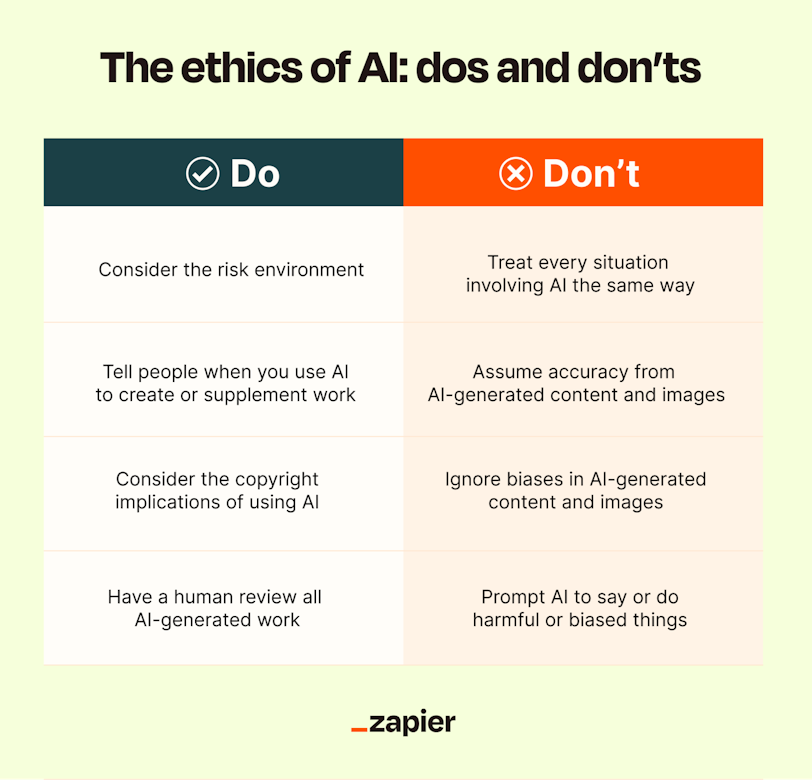
Future-Proofing AI Startups: Long-term Planning
Now, we shall uncover the strategies for long-term success in AI startups, from diversification to talent investment. Gain insights into the future of these innovative companies and their potential to shape a responsible and sustainable technological landscape.
Strategies for Sustainable Growth and Innovation
Diversification: Exploring different market segments and applications of AI helps mitigate risks and capitalizes on multiple growth opportunities.
Investment in Talent: Attracting and nurturing skilled professionals in AI and related fields is critical for sustaining innovation and a competitive edge.
Customer-Centric Innovation: Continually evolving based on customer feedback ensures that AI solutions remain relevant and meet market needs.
Building Partnerships: Forming strategic alliances can provide startups with additional resources, expertise, and market access.
Staying Ahead of Technological Advances: Keeping abreast of the latest AI advancements allows startups to innovate continually and maintain their technological edge.
Conclusion
In conclusion, AI startups are at a pivotal point, offering groundbreaking opportunities and facing unique challenges. Key strategies for success include adaptable and visionary leadership, ethical AI development, and effective funding and partnerships.
Looking ahead, AI startups are set to profoundly impact industries and society. For founders, this era offers exciting prospects for innovation and growth, provided they navigate these waters with foresight and responsibility. The future of AI startups is not just about technological advancement but also about shaping a sustainable, ethical technological landscape.





